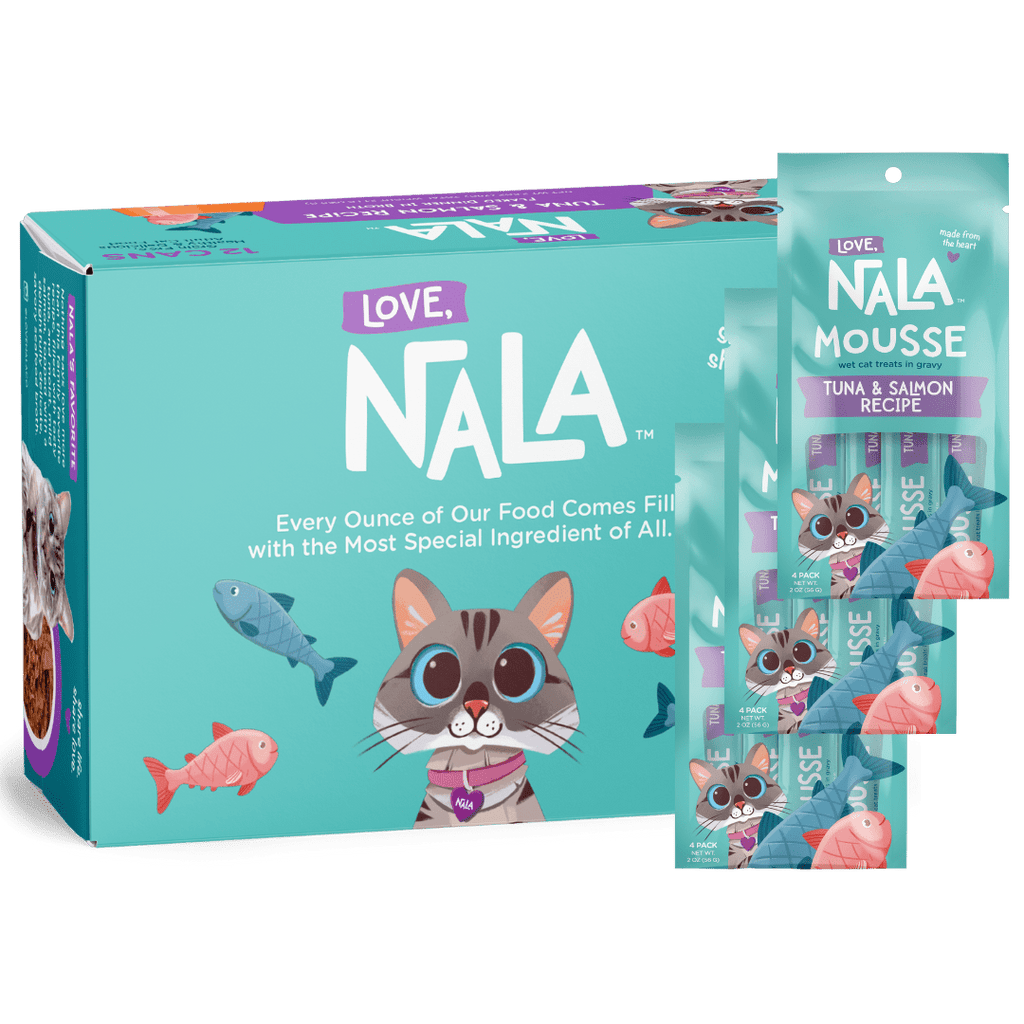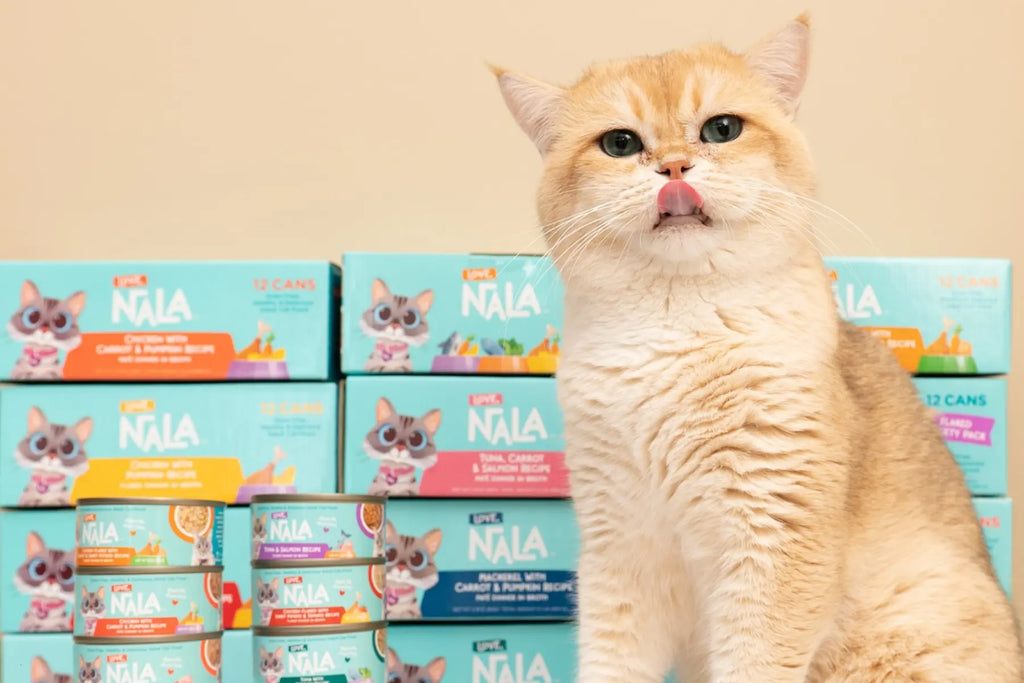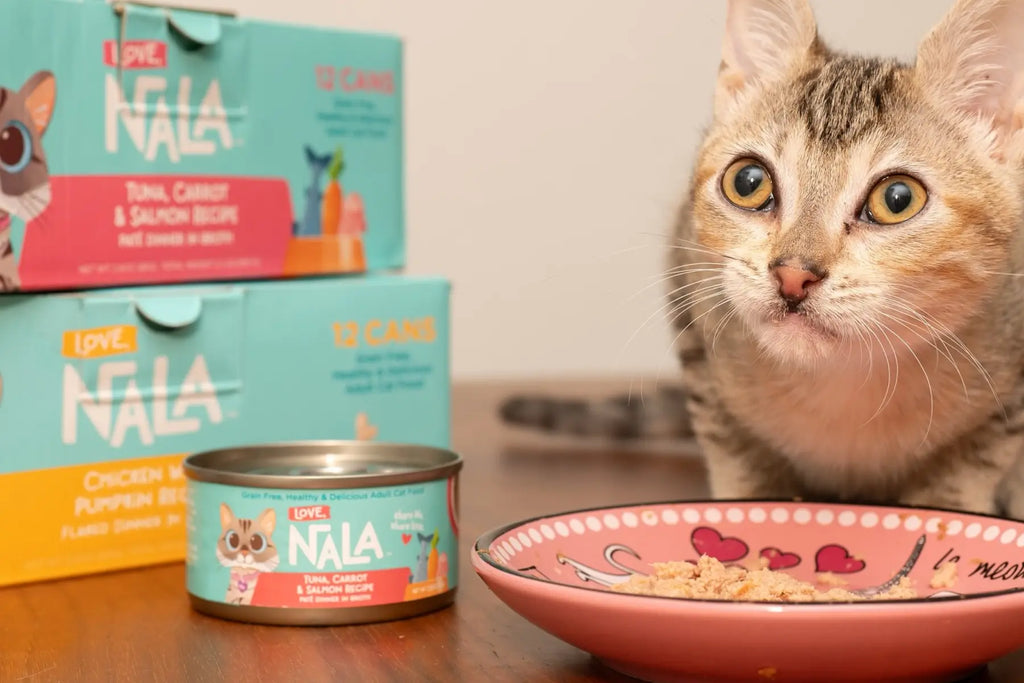When dealing with cats with sensitive stomachs, finding the right diet can be challenging. Wet cat food is often recommended by veterinarians due to its higher moisture content, which is crucial for digestion. The softer texture of wet food makes it easier for cats to chew and digest, reducing the strain on their digestive system. Moreover, it contains fewer preservatives and fillers than dry food, which are common irritants for cats with dietary sensitivities. Introducing wet food into your cat's diet can help alleviate symptoms such as gas, bloating, and irregular bowel movements.

Benefits of Wet Cat Food for Sensitive Cats
How High Moisture Content Aids Digestion
The high moisture content in wet cat food for sensitive stomachs is its biggest advantage, particularly for cats prone to digestive issues. This characteristic makes the food inherently easier to break down and process, facilitating smoother passage through the gastrointestinal tract. Moisture-rich diets help dissolve and flush out waste, prevent constipation, and maintain regular bowel movements. Maintaining optimal hydration is crucial as it aids in digestion and ensures that nutrients are effectively absorbed.
Preventing Dehydration-Related Issues
Dehydration in cats can lead to serious digestive problems, including constipation and an increased risk of urinary tract infections. Wet food for senior cats serves an important role in preventing dehydration as it typically contains about 70-80% water, significantly higher than the 10% found in dry food. By incorporating wet food into your cat’s diet, you're providing an additional water source, aiding in hydration and promoting a healthier digestive system, which is particularly beneficial for older cats whose water intake might naturally decrease with age.
Supporting Kidney Health
Kidney health is vital for cats, and maintaining adequate hydration is key to supporting kidney function. Wet cat food contributes to overall fluid intake, helping to flush out toxins and prevent kidney stones and other renal health issues. Cats are naturally low in thirst drive, so including wet food in their diet ensures they get sufficient water through their meals, reducing the burden on their kidneys and helping maintain their health as they age.
Digestibility of Wet Cat Food
Easier to Digest Than Dry Food
It generally boasts a simpler and more natural ingredient list, which significantly enhances its digestibility compared to dry cat food. The soft consistency of wet food requires less effort from the digestive system to break down and assimilate the nutrients. This feature is particularly beneficial for cats that may struggle with chewing or have less robust digestive systems. Additionally, the absence of high carbohydrate fillers, which are prevalent in many dry foods, means that wet food can be digested more quickly and efficiently, reducing the risk of gastrointestinal distress.
Ideal Ingredients
Their diet is a key factor in managing stomach sensitivities, and certain ingredients can help support their digestive health while minimizing irritation. Hypoallergenic wet cat food should include carefully chosen elements to provide nourishment without causing digestive distress. Below are some of the best ingredients to look for:
- Single-Source Protein: This refers to protein derived from one specific animal, such as chicken, turkey, or salmon. Limiting protein sources can help minimize the risk of allergic reactions or sensitivities to particular proteins. When the body has fewer foreign proteins to process, the digestive system is less likely to be overstressed, allowing it to absorb nutrients more efficiently. For cats prone to food allergies or sensitivities, single-source proteins reduce the likelihood of negative reactions that could upset their stomachs and cause discomfort.
- Limited Ingredients: Foods with a simple, minimal ingredient list reduce the chances of a problematic component triggering an allergic reaction or digestive upset. Many commercial cat foods contain unnecessary additives, fillers, and multiple types of proteins, all of which can make it harder for cats to digest their meals. By keeping the ingredients to a minimum, you allow your cat's digestive system to focus on processing the essential nutrients without being overwhelmed.
- Grain-Free Formulas: Grains, such as corn, wheat, and soy, can be hard for some cats to digest, especially those with sensitive stomachs. Grain-free formulas are crafted to eliminate these ingredients, which may cause bloating, gas, or other digestive issues. Instead, these foods often rely on alternative carbohydrate sources like sweet potatoes or peas, which are easier on a cat’s digestive system. Cats are obligate carnivores, meaning they thrive on a diet primarily made of animal proteins rather than grains, which they do not naturally digest well.
- Probiotics: Probiotics are beneficial bacteria that support a healthy gastrointestinal tract. Including probiotics in your cat’s diet can help balance the gut flora, leading to improved digestion and reduced stomach upset. Cats with sensitive stomachs often experience imbalances in their gut bacteria, which can contribute to ongoing digestive issues such as diarrhea, vomiting, or gas. Probiotics work by promoting the growth of healthy bacteria in the intestines, which helps break down food more effectively and prevent harmful bacteria from taking over. These friendly microbes are an excellent addition to a sensitive cat's diet, as they can improve nutrient absorption and overall gut health.
- Natural Fibers: Fiber can help maintain regular bowel movements and prevent constipation, a common issue that can lead to discomfort. Fiber works by adding bulk to the stool and ensuring that food moves efficiently through the digestive system. It also helps control the absorption of nutrients, making sure your cat gets the most from their food. Foods containing natural sources of fiber, like pumpkin or peas, can improve your cat’s digestive health without irritating it, making it a critical ingredient for maintaining balanced digestion.
- No Artificial Additives: Colors, flavors, and preservatives, can exacerbate digestive issues in cats with sensitive stomachs. These additives are often unnecessary and can trigger allergic reactions or digestive discomfort in pets. Removing these from your cat’s food reduces the risk of them consuming irritants that could upset their stomach or cause adverse reactions. Artificial additives offer no nutritional value, making them an easy target for elimination when choosing high-quality, sensitive-stomach-friendly cat food.
When selecting food for a cat with a sensitive stomach, it is essential to prioritize ingredients that soothe rather than irritate their digestive system. By focusing on natural, high-quality ingredients, you can help your cat maintain healthy digestion and avoid discomfort.

Hypoallergenic and Natural Wet Cat Food
Benefits of Natural Ingredients
Fresh meat, such as chicken, beef, or fish, offers high-quality protein that is essential for muscle development, tissue repair, and maintaining energy levels in cats. Unlike highly processed proteins found in some commercial pet foods, fresh meat retains more of its original nutritional value, ensuring cats receive a balanced amount of essential amino acids. Additionally, wholesome vegetables such as sweet potatoes, peas, and spinach are rich in fiber, vitamins, and antioxidants, which support various bodily functions. Antioxidants from vegetables help combat oxidative stress, which can damage cells and contribute to chronic illnesses in cats. This combination of natural protein and fiber helps to sustain a cat’s overall well-being, promoting stronger immunity and better digestion.
Omega-3s are known to improve coat quality, reducing shedding and promoting a shiny, soft appearance. They also play a crucial role in reducing inflammation, which can be particularly beneficial for cats suffering from arthritis or other inflammatory conditions. Omega-3s contribute to maintaining healthy skin and preventing issues such as dryness, itching, and dandruff. These fatty acids support heart health by helping regulate cholesterol levels and reducing the risk of cardiovascular diseases. Fish oil supplements, in particular, offer EPA and DHA, two types of omega-3s that are crucial for brain development and cognitive function. It can be especially helpful for aging cats, as these nutrients help slow cognitive decline and improve overall mental sharpness.
Common Allergens to Avoid
Many common ingredients in commercial cat foods may not agree with a sensitive cat’s system, causing anything from mild digestive issues to severe allergic reactions. By understanding these allergens and reading labels carefully, you can make informed decisions to support your cat's health and well-being. Below is a look at the common allergens:
- Dairy Products: Dairy is another common ingredient that can cause digestive problems for cats, particularly those who are lactose intolerant. Most adult cats lack the enzyme lactase, which is necessary to break down lactose found in milk and other dairy products. As a result, when they consume dairy, they may experience bloating, gas, and diarrhea. Cheese, cream, and milk are often added to wet cat food to improve taste, but for cats with dairy sensitivities, these can be harmful. Even though dairy might seem like a tasty treat for your cat, it’s best to avoid it if your cat exhibits signs of intolerance.
- Beef and Seafood: While beef and seafood are common protein sources in food for cats with gastrointestinal problems, they can also be significant allergens for certain cats. Beef is a highly reactive protein, which can cause allergic reactions ranging from digestive upset to skin problems such as itching, redness, or excessive grooming. Seafood, particularly fish like tuna or salmon, is also a known allergen that can cause similar reactions. Moreover, seafood allergies might be exacerbated by the heavy metals and toxins often found in certain types of fish. If your cat experiences discomfort after eating food with beef or seafood, switching to alternative proteins like chicken or turkey might help reduce allergic responses.
- Artificial Additives: Many wet cat foods contain artificial colors, flavors, and preservatives designed to make the food more appealing or to extend its shelf life. However, these additives can be harmful to sensitive cats, potentially triggering allergic reactions or exacerbating existing conditions. For example, artificial dyes and flavor enhancers may cause skin irritation, while preservatives such as BHA and BHT have been linked to long-term health problems. Opting for cat food made with natural ingredients and no artificial additives is a safer choice for cats with sensitivities.
- Gluten: Gluten, a protein found in wheat and other grains, is another common allergen in cats. Some cats may develop gluten intolerance or even gluten sensitivity, which can lead to digestive problems such as vomiting, diarrhea, and weight loss. This intolerance can be especially concerning because gluten is often used as a thickener or filler in wet food for cats with diarrhea. Cats that are sensitive to gluten should be fed grain-free or gluten-free diets to prevent gastrointestinal issues and support better digestion. If your cat shows signs of gluten sensitivity, it’s important to carefully check ingredient lists to ensure their food is free from wheat, barley, or rye.
Eliminating problematic ingredients can go a long way in preventing allergies and ensuring your cat enjoys a balanced and nutritious diet. Always consult with your veterinarian if you suspect your cat has food sensitivities, as they can help guide you toward the best dietary options.
Choosing the Right Food for Cats with Digestive Issues
Wet Food Brands
Several reputable brands specialize in formulating food for cats with food allergies. When choosing a brand, consider those with a strong focus on natural ingredients and a history of positive feedback from pet owners regarding digestive health improvements. Researching and selecting a trusted brand can significantly impact the well-being of a cat with a sensitive stomach.
Where to Buy Wet Cat Food
Purchasing wet cat food online offers convenience and the ability to compare different products and brands effectively. Before making your next purchase, it's important to consider three key factors to ensure your cat's dietary needs are met:
- Wide Selection: Many online stores offer an extensive range of brands, flavors, and formulations, making it easy to find the right food for your cat’s specific dietary needs. You can compare products side-by-side, read ingredient lists, and even search for specific veterinary-recommended diets for cats with health conditions such as kidney disease or sensitive stomachs. A wider selection means you have more flexibility to choose food that aligns with your cat’s preferences and nutritional requirements.
- Subscriptions: Signing up for a subscription service is a smart way to manage your cat’s food supply without worrying about running out. Many online stores offer subscription options that allow you to receive wet easy to digest wet cat food on a regular schedule, ensuring you never have to make last-minute purchases. This is especially useful for multi-cat households or pet owners with busy schedules. Subscribing often comes with the benefit of additional savings or discounts, plus the convenience of automatic deliveries to your door.
- Discounts: Many retailers offer special promotions or loyalty programs that provide discounts for buying in larger quantities or for signing up for recurring orders. This can be particularly useful if your cat requires a specific, often expensive, diet, as buying in bulk can significantly reduce the overall cost. Some websites also provide coupon codes, membership rewards, or free shipping offers, which further increase the value of shopping online. Comparing prices across different retailers allows you to find the best deals without leaving the comfort of your home.
By considering these factors when you order wet cat food you can make informed decisions that benefit both your cat’s health and your convenience. Whether you are searching for specialty diets, looking to save money, or ensuring the freshest supply, online shopping provides a range of options tailored to your needs.

Integrating the best diet for cats with sensitive stomachs should be a gradual process, especially if they are used to dry food. Start by mixing small amounts of wet food with their current food, gradually increasing the proportion over several days. This slow transition helps prevent digestive upset and allows your cat to adjust to the new textures and flavors. Monitoring your cat's reaction to the new diet is crucial; if they show signs of improved health and vitality, continue to increase the wet food proportion. Consulting with a veterinarian to recommend specific products or dietary adjustments can be very beneficial.




















